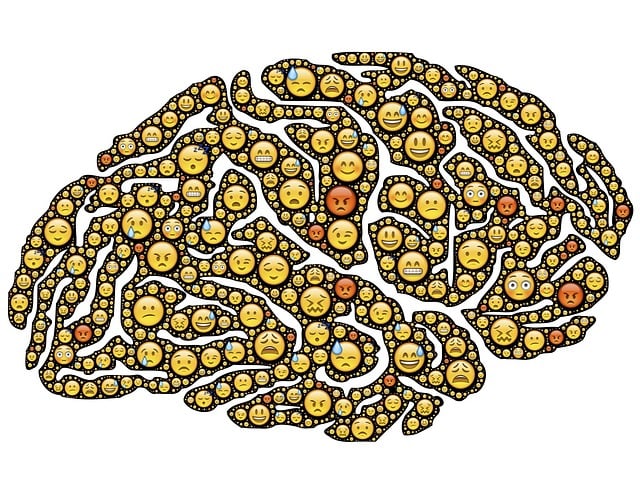Postpartum depression (PPD) is a critical mental health issue affecting new mothers, caused by hormonal changes, sleep deprivation, increased responsibilities, and past trauma. To combat PPD, organizations can implement stress management workshops. Technology, particularly digital platforms and wellness apps, has improved access to therapy for adults with PPD. A well-designed mental wellness app tailored for PPD should include mood trackers, guided meditations, personalized coping strategies, educational content, anonymized forums, and success stories to reduce stigma and foster open conversations. Ethical data handling and privacy are crucial in developing such apps, ensuring user trust and control over their information.
Mental wellness app development has emerged as a powerful tool to address growing mental health challenges, particularly among adults suffering from postpartum depression. As technology advances, digital solutions offer accessible and discreet therapy options. This article delves into understanding specific issues like postpartum depression, the role of technology in providing support, designing effective app features, and navigating ethical considerations for sensitive data. By exploring these aspects, we aim to enhance access to quality mental health resources, focusing on tailored therapy for adults experiencing postpartum depression.
- Understanding Mental Health Challenges: A Focus on Postpartum Depression in Adults
- The Role of Technology: Exploring Digital Solutions for Therapy and Support
- Designing Effective Features for a Wellness App
- Ethical Considerations and Privacy in Mental Health App Development
Understanding Mental Health Challenges: A Focus on Postpartum Depression in Adults

Postpartum depression (PPD) is a significant mental health challenge that often goes unnoticed in the broader context of adult therapy. This period, immediately after giving birth, can be incredibly vulnerable for new mothers, leading to intense emotions and potential signs of depression. While many associate mental illness stigma reduction efforts with traditional conditions, PPD deserves equal attention due to its impact on not just the mother but also their families and communities.
Understanding PPD involves recognizing that it’s more than just the “baby blues.” It’s a complex interplay of hormonal changes, lack of sleep, increased responsibilities, and potential trauma support services needed for previous experiences. Stress management workshops within organizations can play a crucial role in equipping new parents with tools to manage this phase effectively. By addressing PPD early, these efforts not only alleviate individual suffering but also foster healthier communities that support open conversations about mental wellness.
The Role of Technology: Exploring Digital Solutions for Therapy and Support

Technology has revolutionized the way we access mental health services, offering innovative solutions for individuals seeking therapy and support, especially for common issues such as postpartum depression among adults. Digital platforms provide a convenient and accessible approach to care, breaking down barriers traditionally associated with traditional therapy sessions. Apps designed for mental wellness can deliver therapeutic interventions tailored to individual needs, from self-awareness exercises promoting positive thinking to advanced tools for risk assessment in mental health professionals’ hands.
These digital solutions encourage users to actively engage in their mental well-being on a daily basis. By integrating evidence-based practices into intuitive mobile interfaces, mental wellness apps have the potential to improve accessibility and reduce stigma, ensuring that support is readily available when needed most. This shift towards digital therapy represents a significant step forward in addressing mental health challenges prevalent in today’s fast-paced world.
Designing Effective Features for a Wellness App

Developing a mental wellness app requires careful consideration of features that cater to various aspects of emotional healing processes. For adults dealing with postpartum depression, tailored therapies and support systems are paramount. Incorporating interactive tools such as mood trackers, guided meditations, and personalized coping strategies can empower users to actively engage in their mental wellness journey. These features should be intuitive and accessible, ensuring a seamless user experience that encourages consistent use.
In addition to these core functionalities, the app can contribute to Mental Illness Stigma Reduction Efforts by offering educational content, anonymized community forums, and success stories from other adults who have navigated similar challenges. By fostering open conversations about mental health and providing platforms for support, the app can help create a sense of belonging and reduce feelings of isolation commonly associated with mental illness.
Ethical Considerations and Privacy in Mental Health App Development

In the realm of mental wellness app development, ethical considerations and privacy are paramount, especially when addressing sensitive issues like postpartum depression and trauma support services. As therapy for adults becomes increasingly accessible through digital platforms, developers must ensure user data is handled with utmost care. The psychological well-being of individuals seeking confidence boosting and inner strength development is a delicate matter that requires robust security measures to protect private information.
Privacy policies should be transparent, clearly outlining how personal details are collected, stored, and shared, in line with relevant regulations such as GDPR or HIPAA. This is crucial for building trust among users who may have experienced trauma and value confidentiality. Moreover, apps should avoid collecting unnecessary data and provide users with control over their information, promoting a sense of empowerment while receiving therapy for adults or managing postpartum depression symptoms.
The development of mental wellness apps offers a promising avenue for providing accessible therapy for adults, particularly those experiencing postpartum depression. By leveraging technology, these applications can deliver tailored support and resources directly to users’ fingertips. However, as we navigate the ethical landscape of mental health app development, it’s crucial to prioritize user privacy and ensure evidence-based practices. Through careful consideration of key features and ongoing evaluation, wellness apps have the potential to revolutionize access to care and foster better mental health outcomes for postpartum individuals.














